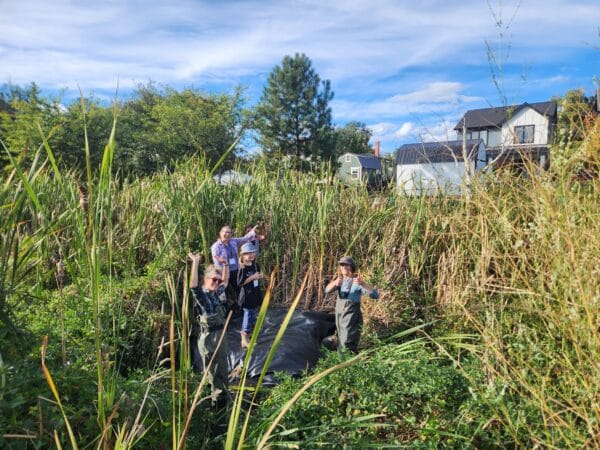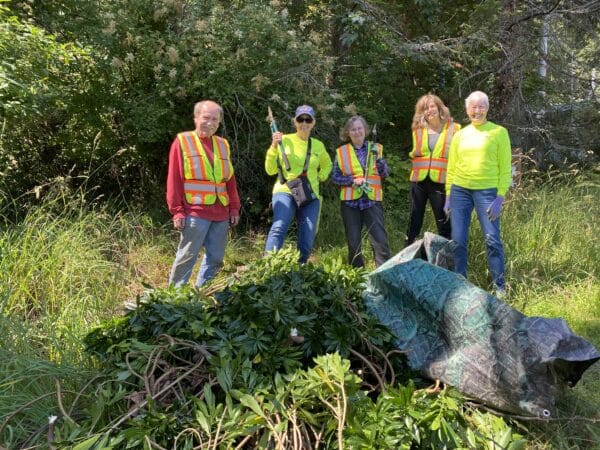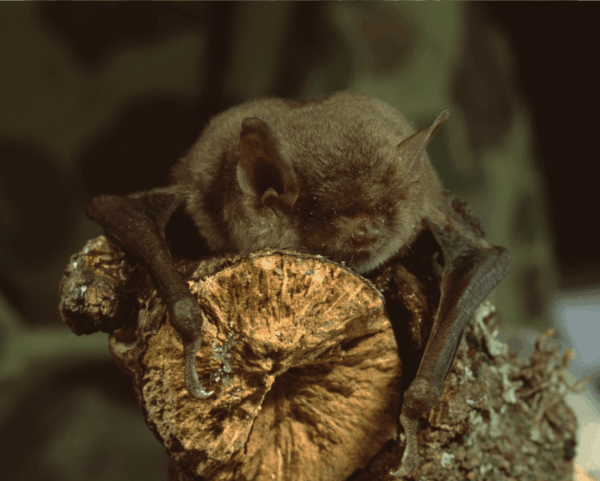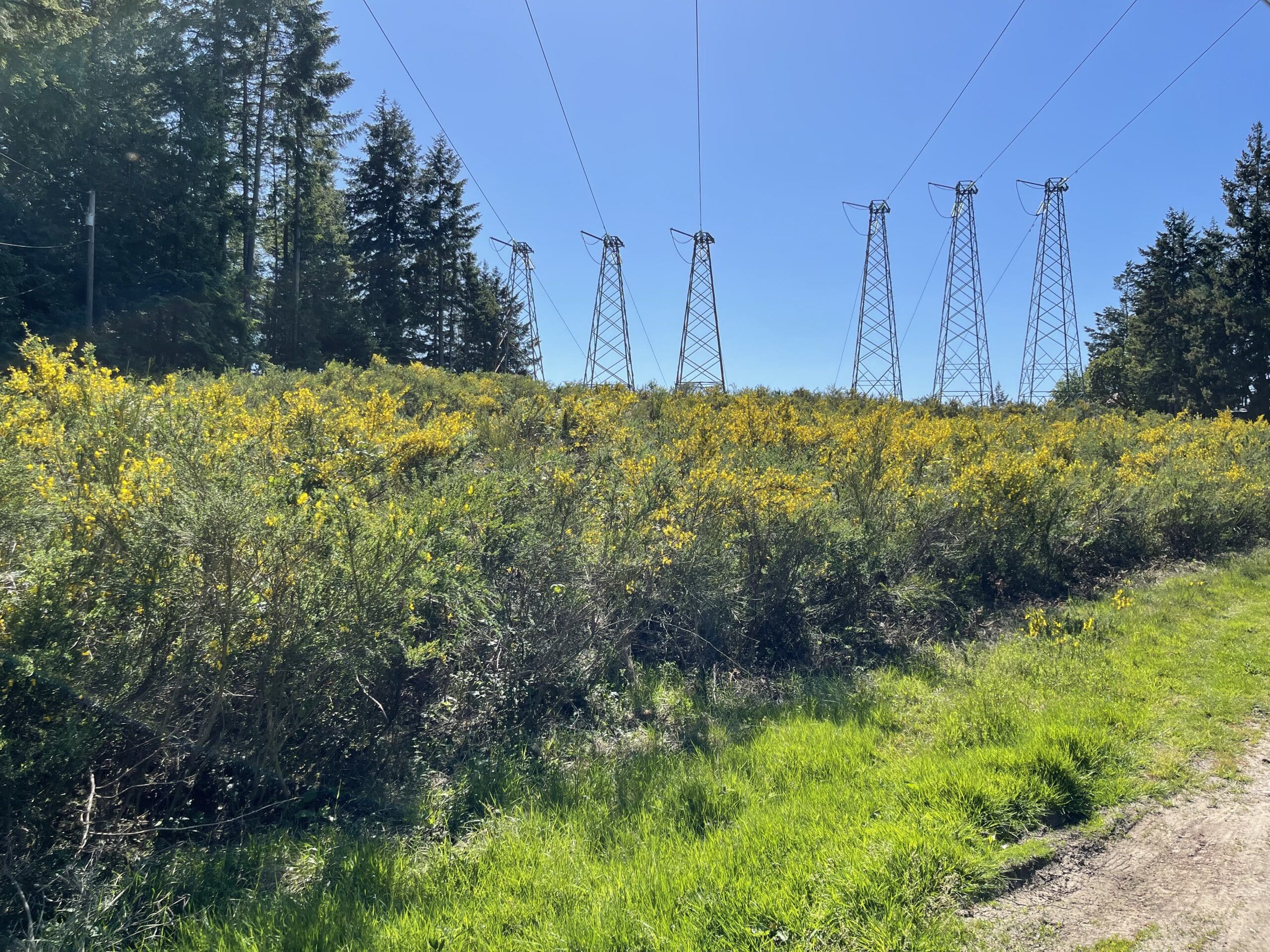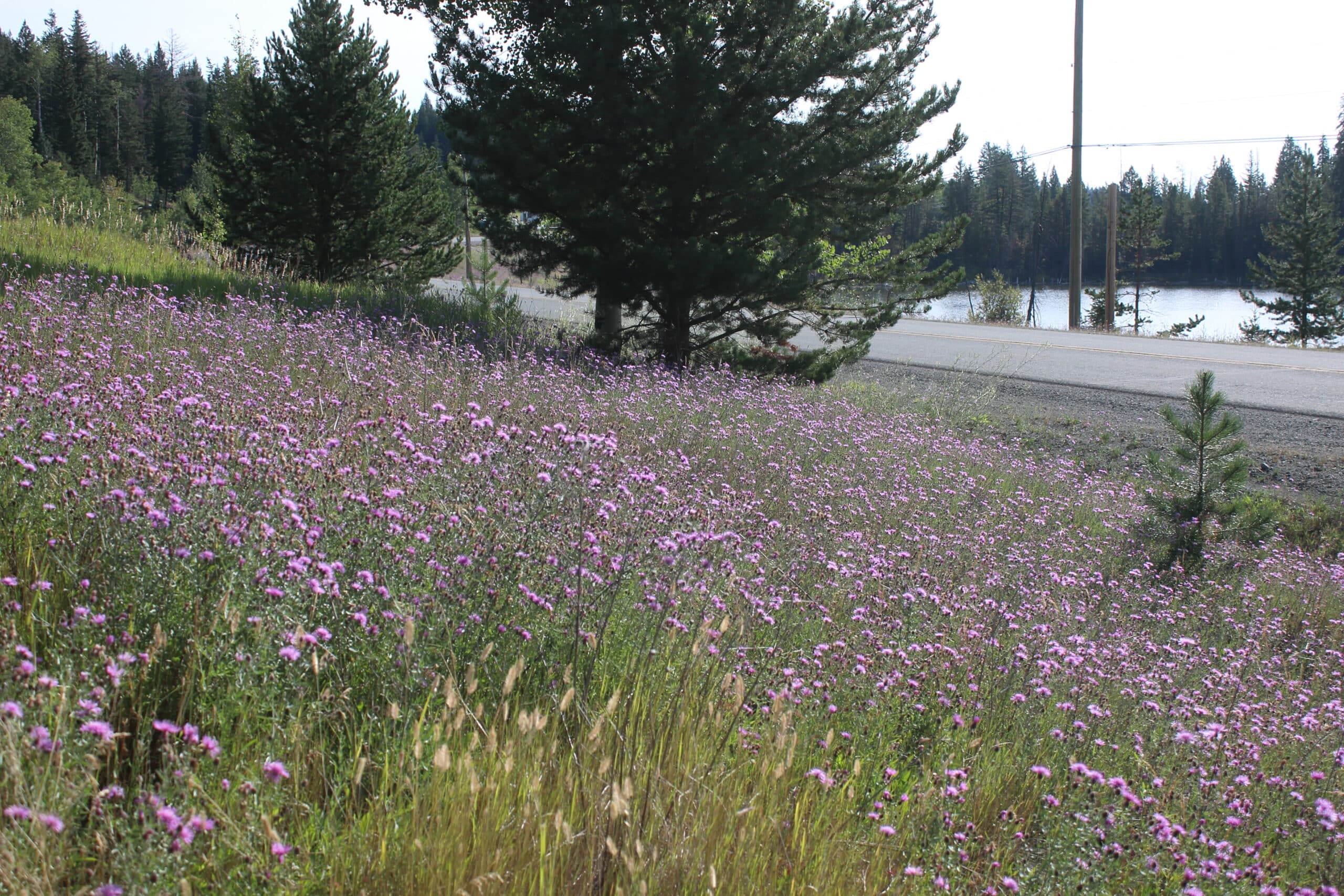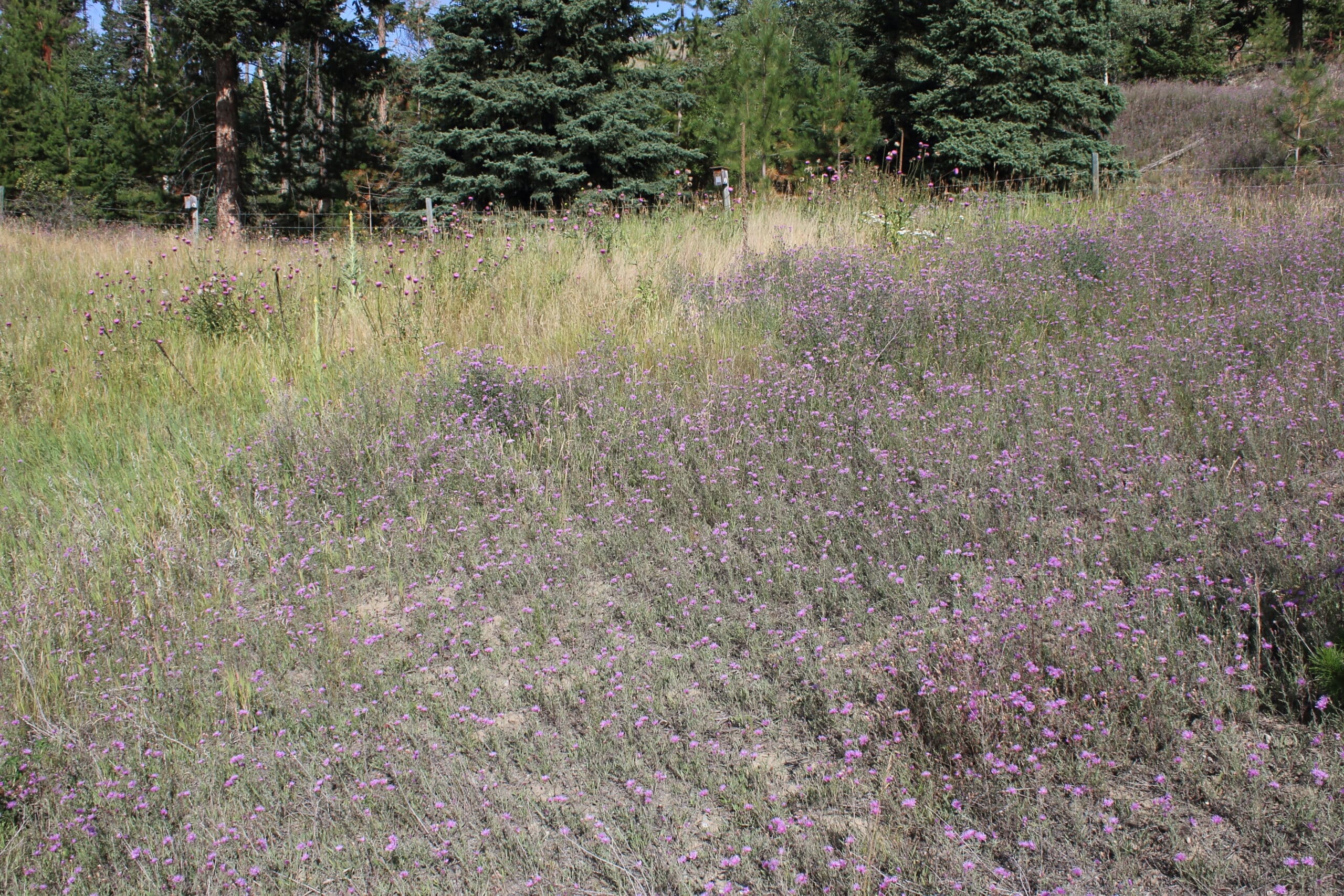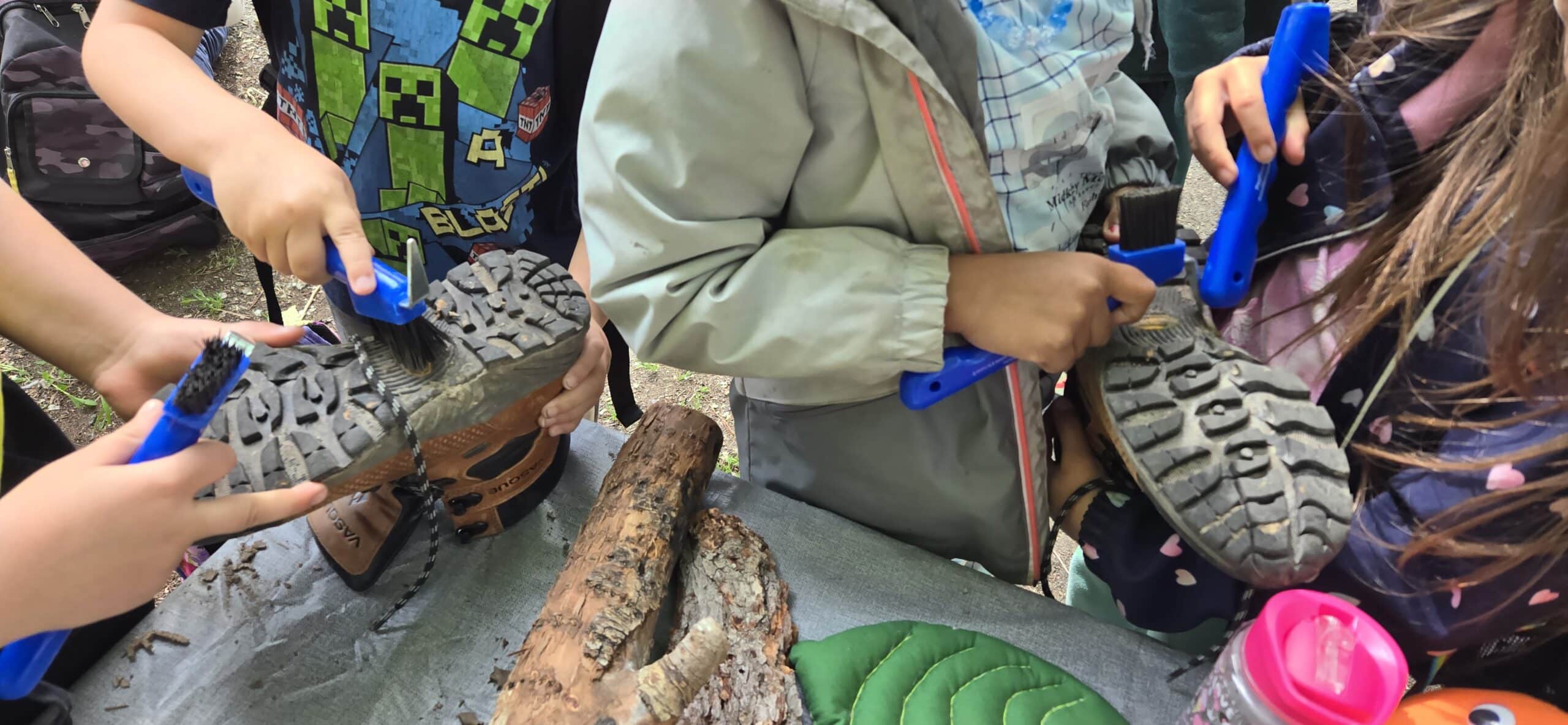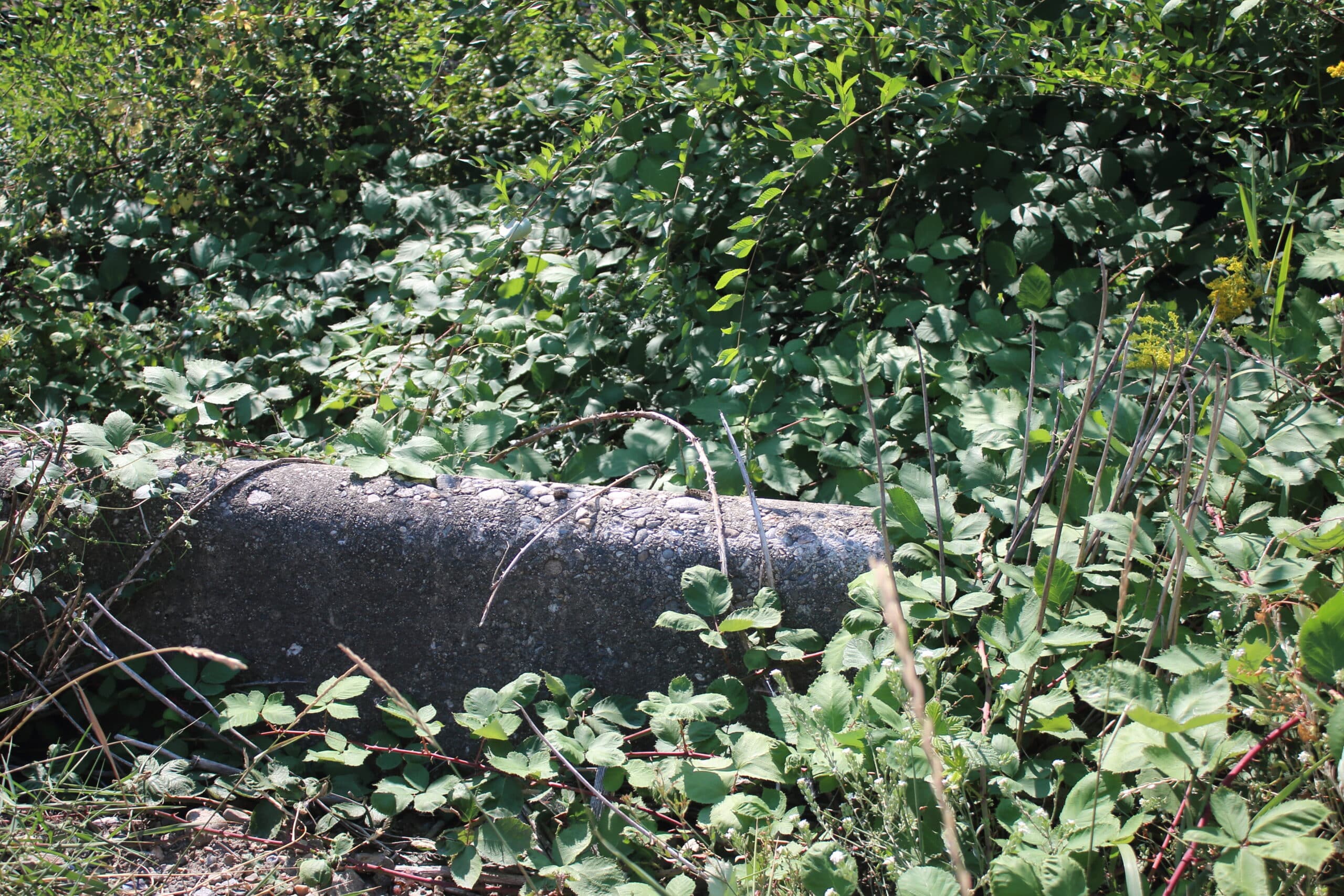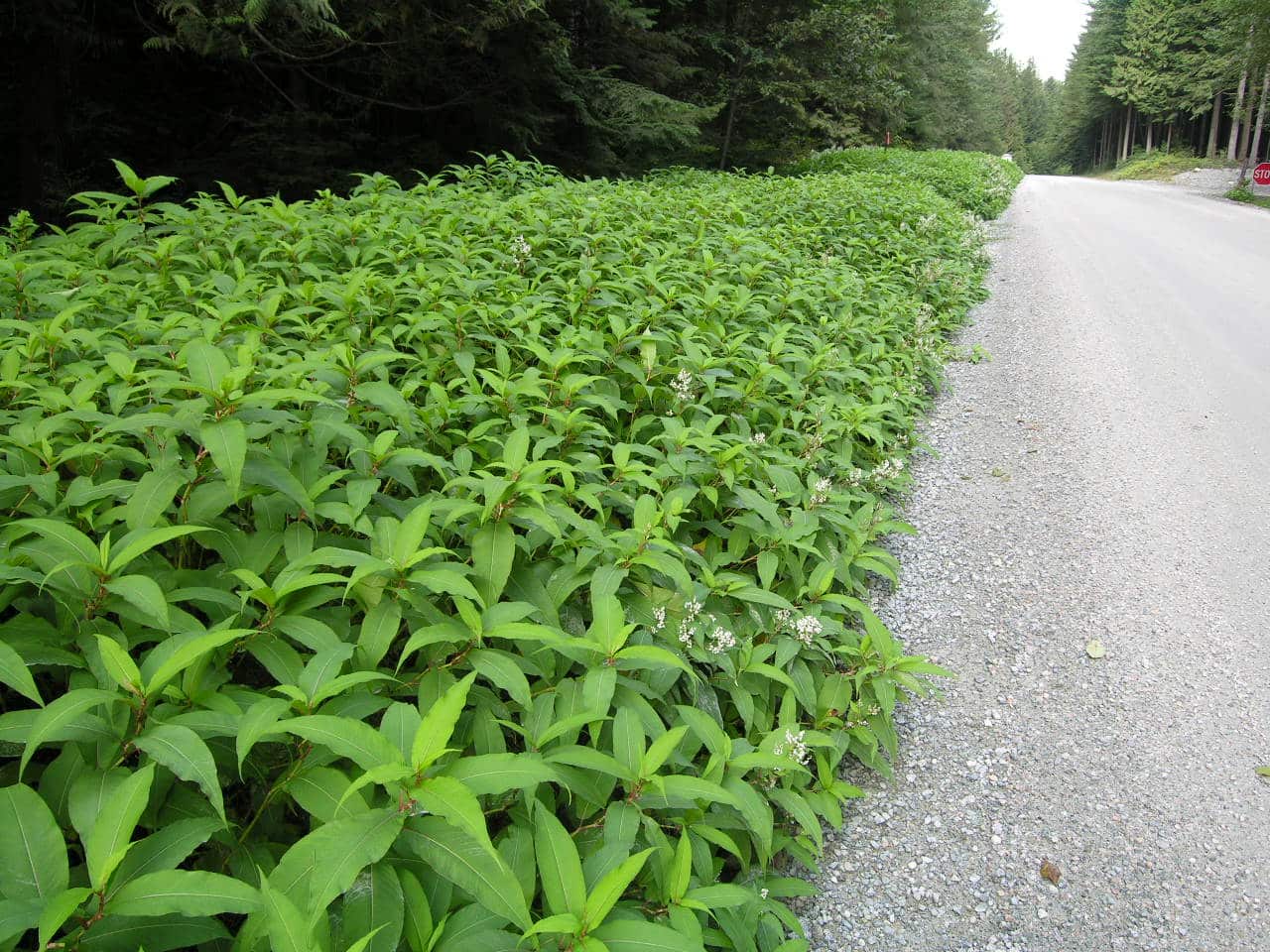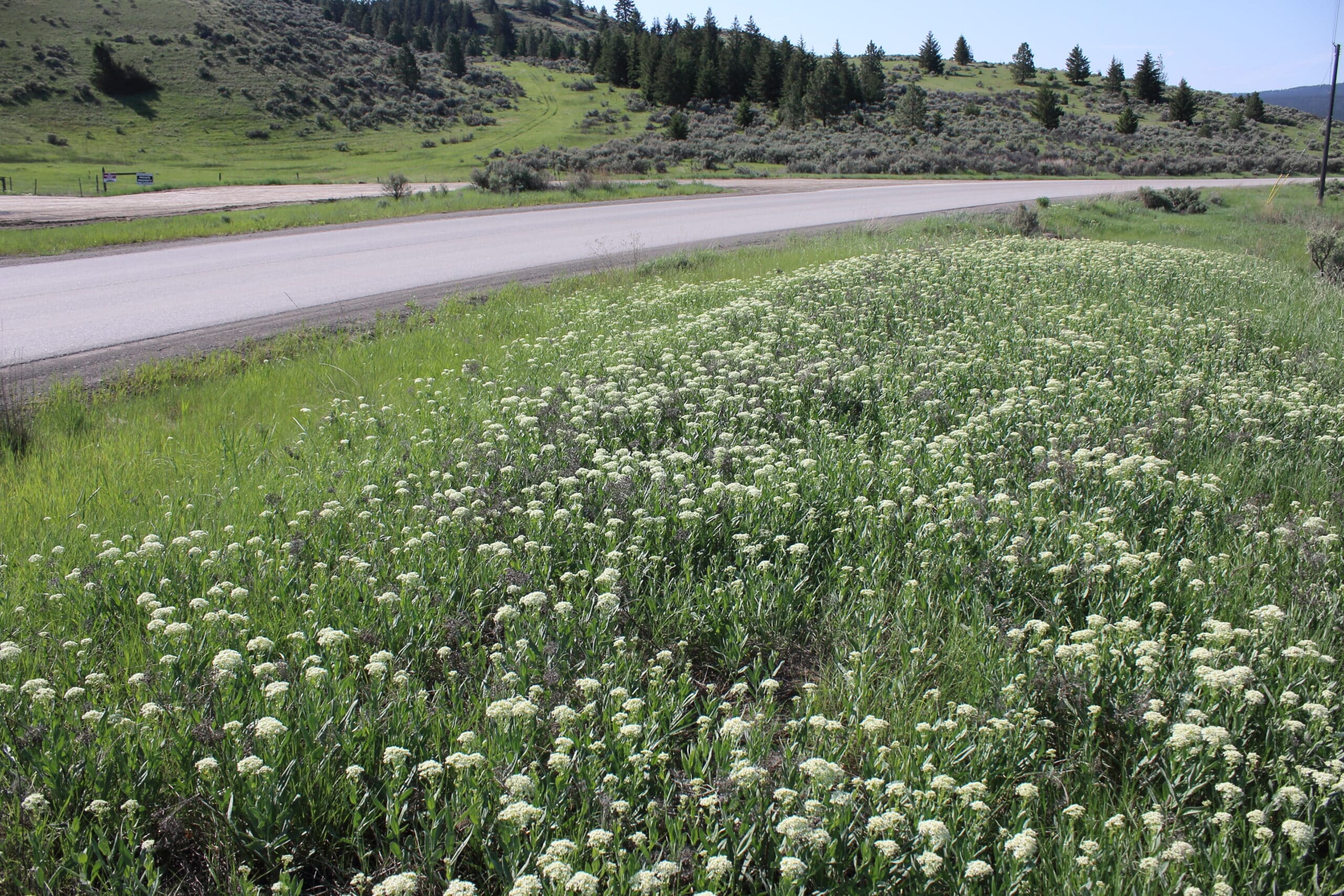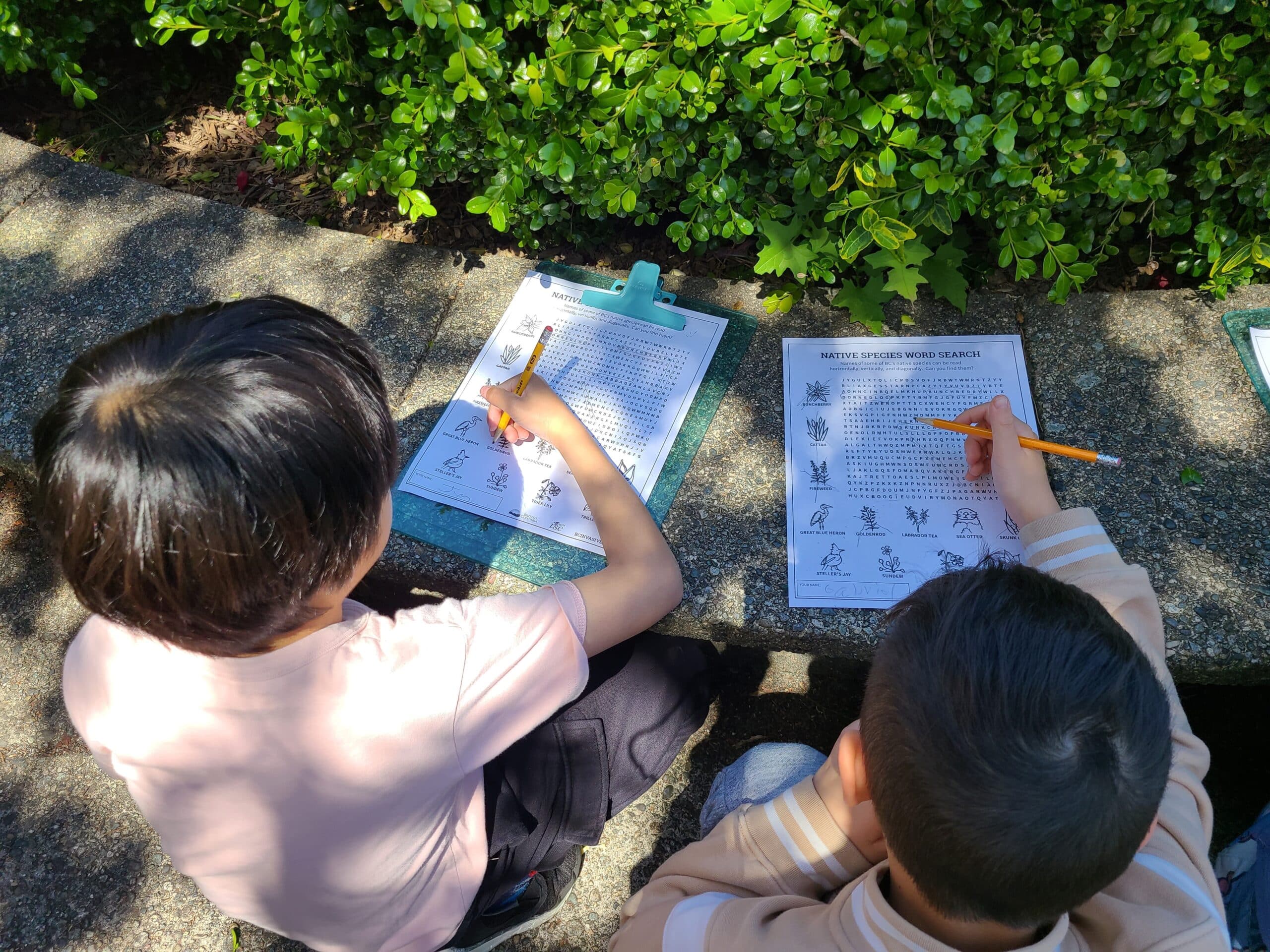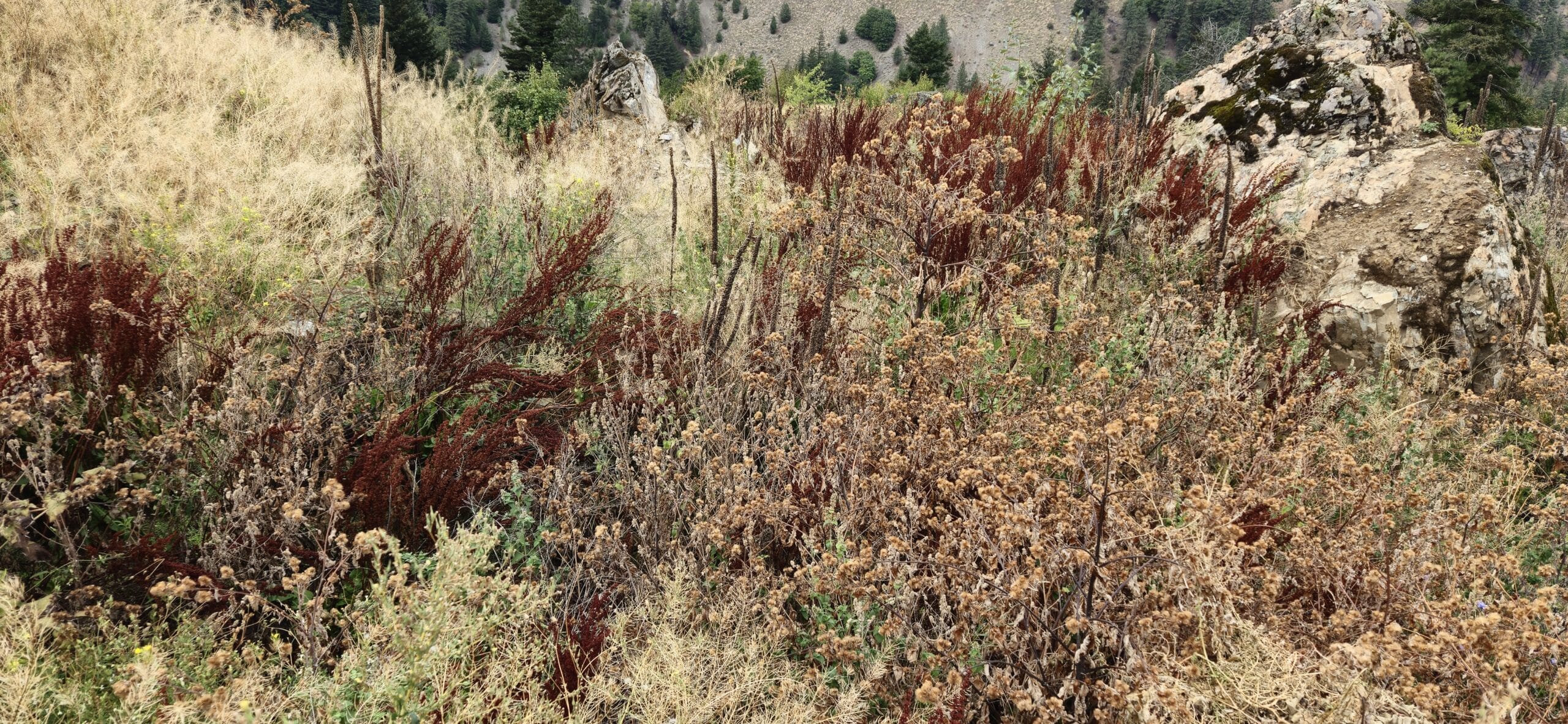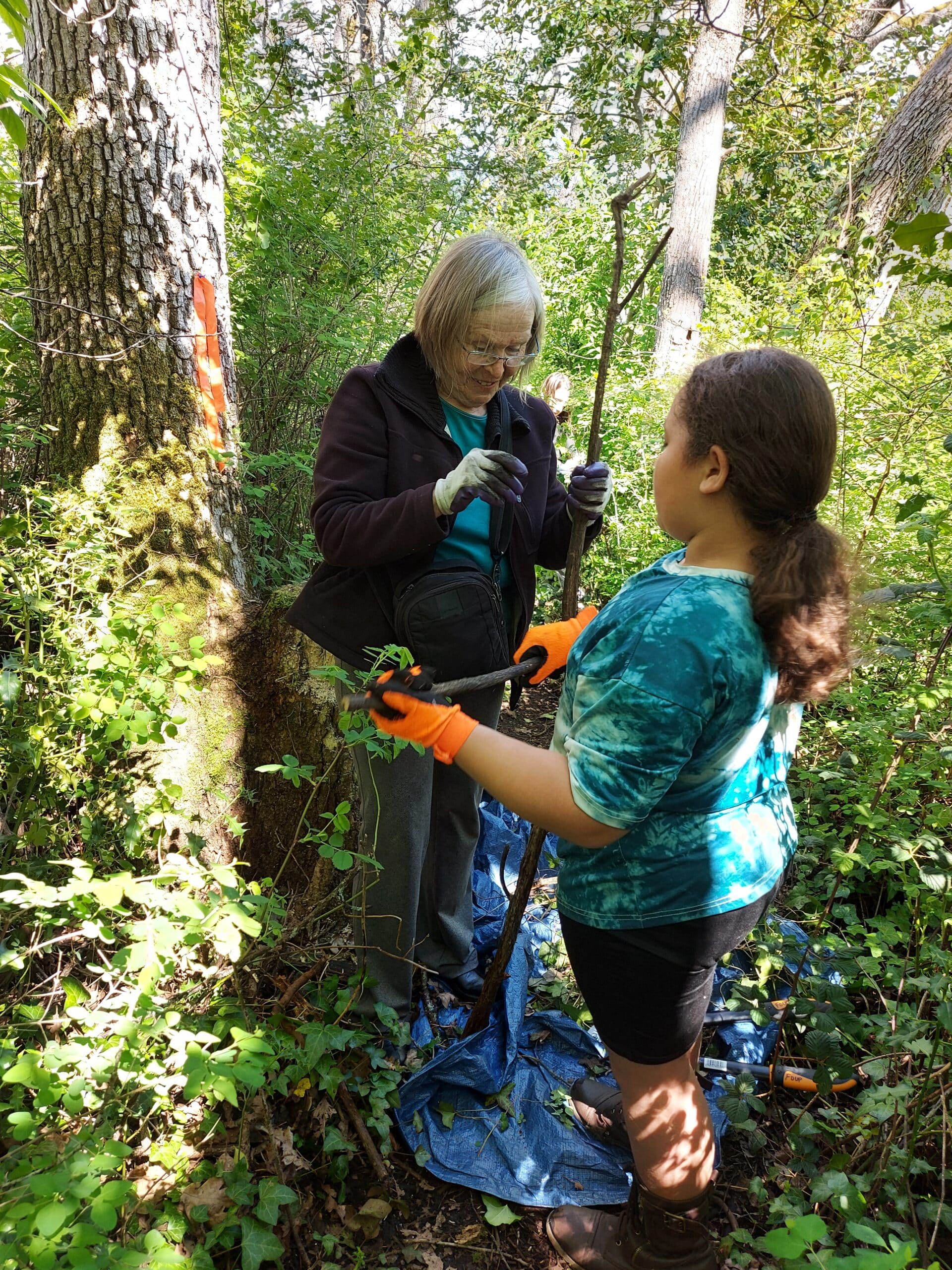Every year since 2015, the BC government has proclaimed May “Invasive Species Action Month”. The month also coincides with the start of field season for ISCBC Action Teams, now on the ground in nine BC communities. They’re doing field work managing and removing invasive species around Campbell River, Nanaimo, Surrey, Abbotsford, Kamloops, Salmon Arm, Quesnel, Nelson, and Cranbrook. This work is about protecting biodiversity, helping our natural spaces return to their healthiest, most resilient states.
Action Teams start with a list of sites of concern where invasive species have created an imbalance in the local eco-system, threatening the health and well-being of native species, and leaving areas vulnerable to climate change events including fires, floods, and biodiversity loss.
Our inaugural Stronger BC field season in 2021 was incredible. 14 Action Teams visited and treated 775 sites across BC. Among their accomplishments our Chilliwack Action Team pulled out over 550 pounds of Himalayan blackberry by hand, our Victoria crew pulled close to 5,400 Daphne (Spurge-laurel) plants by hand from Golf Islands Disc Park on North Pender Island, and our Salmon Arm Action Team took on Scotch broom at one site, surveying, cutting stems as close to the ground as possible, bagging plants and taking them to a local landfill.
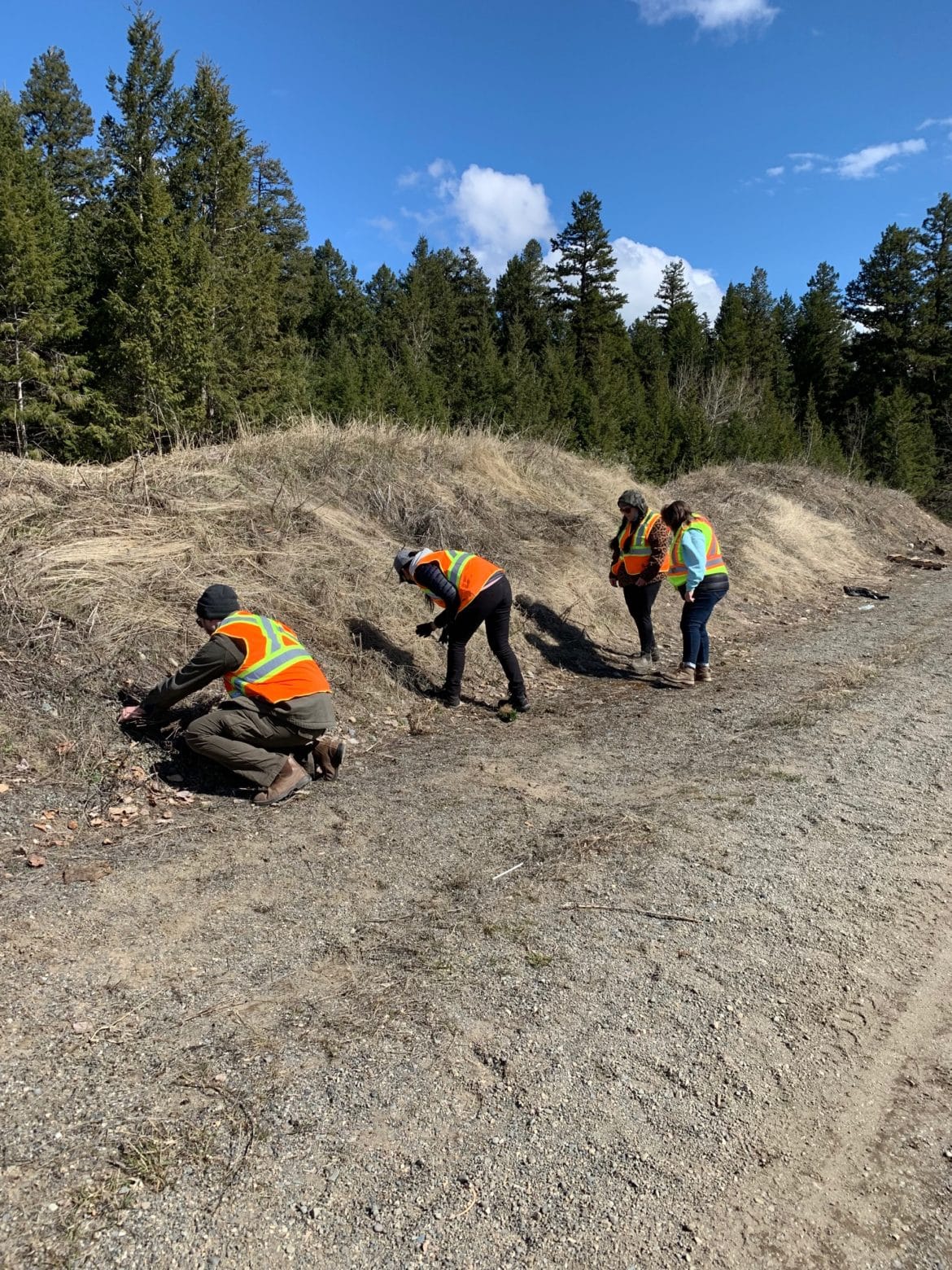
ISCBC Executive Director Gail Wallin says this important work is made possible in large part thanks to funding from the BC Economic Recovery Plan, Stronger BC. “Our goal with this $8 million investment from the province is to hire 200 people to help tackle invasive species. This skills development program helps transition people into rewarding careers working for the environment. Crews learn all about invasive species identification and management and they develop important field skills. So far, as part of this program we have hired and trained 176 people to make a positive difference in BC’s natural spaces”.
Across BC, Canada and the world, invasive species pose the second greatest threat to biodiversity after habitat loss. This program gives people looking for work in this province skills in invasive species management, setting them up for success in the environmental protection field. We look forward to seeing the Action Teams’ progress this season!
Share



